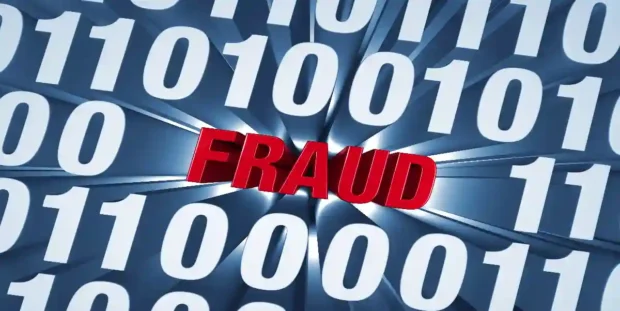1. The Private Securities Litigation Reform Act of 1995
The Private Securities Litigation Reform Act of 1995 (PSLRA) is a significant piece of legislation aimed at curbing frivolous securities lawsuits and enhancing the overall integrity of the financial markets. It was enacted by the United States Congress to address the rampant issue of meritless class-action lawsuits that were often filed with the intent of forcing settlements from companies due to the high costs associated with litigation.
The PSLRA introduced several key provisions to achieve this goal, including heightened pleading standards, the requirement for plaintiffs to provide specific facts demonstrating that defendants acted with fraudulent intent, and the mandate for courts to stay discovery until motions to dismiss are resolved. This legislation also aimed to protect companies from extortionate legal practices while ensuring that legitimate claims could still proceed through the judicial system.

One notable example of a class-action lawsuit in the context of securities litigation is the Krispy Kreme Class Action Lawsuit. This lawsuit was filed by shareholders who alleged that Krispy Kreme had engaged in fraudulent practices that led to inflated stock prices, causing significant financial losses when the truth was revealed.
Under the guidelines set forth by the PSLRA, plaintiffs in such cases must meet stringent requirements to substantiate their claims and provide clear evidence of intentional misconduct by the company. The Krispy Kreme Class Action Lawsuit serves as a pertinent illustration of how the PSLRA functions to filter out unsubstantiated allegations while allowing shareholders with credible grievances to seek justice.
Overall, the PSLRA has played a crucial role in shaping the landscape of securities litigation. By setting higher standards for plaintiffs and implementing measures to deter baseless lawsuits, it has contributed to a more balanced and fair legal environment for both investors and companies. The Krispy Kreme Class Action Lawsuit exemplifies the practical application of this legislation, highlighting its impact on real-world cases and its importance in maintaining market stability and investor confidence.
 2. The Securities Exchange Act of 1934
2. The Securities Exchange Act of 1934
The Securities Exchange Act of 1934 is a critical piece of legislation in the United States that governs the trading of securities such as stocks and bonds. Enacted in response to the stock market crash of 1929, the Act aims to ensure transparency, fairness, and integrity within the financial markets. It established the Securities and Exchange Commission (SEC), which is responsible for enforcing federal securities laws and regulating the securities industry.

The SEC’s mandate includes overseeing securities transactions, ensuring that companies disclose accurate financial information, and preventing fraudulent activities. The Act also addresses issues related to insider trading, manipulation of stock prices, and other malpractices that could undermine investor confidence.
One notable example of a case influenced by the Securities Exchange Act of 1934 is the Krispy Kreme Lawsuit. In this instance, Krispy Kreme Doughnuts faced allegations related to accounting irregularities and misleading financial statements.
The lawsuit brought attention to the importance of compliance with SEC regulations and highlighted the role of the SEC in protecting investors from fraudulent practices. As part of its enforcement duties, the SEC investigates such cases to determine whether companies have violated securities laws and mandates corrective actions if necessary.
The Securities Exchange Act of 1934 has significantly shaped the landscape of financial regulation in the United States. By establishing a framework for transparency and accountability, it provides investors with greater confidence in the integrity of financial markets. Cases like the Krispy Kreme Lawsuit underscore the ongoing relevance of the Act in maintaining market discipline and safeguarding investor interests. Overall, the Act remains a cornerstone of U.S. financial regulation, continually adapting to address emerging challenges within the securities industry.
3. The Securities Act of 1933
The Securities Act of 1933, also known as the “Truth in Securities” law, was enacted to ensure greater transparency in financial statements and to establish laws against misrepresentation and fraudulent activities in the securities markets. This federal legislation was a crucial response to the stock market crash of 1929 and the subsequent Great Depression, aiming to restore investor confidence. The Act mandates that companies provide essential financial information through a registration process before their securities can be offered to the public, effectively preventing deceitful practices that could harm investors.

The Securities Act of 1933 serves as the foundation for financial regulation in the United States, requiring issuers to disclose significant details about their business operations, financial condition, and the securities they are offering. This transparency is intended to enable investors to make informed decisions.
For instance, in cases like the Krispy Kreme Class Action Lawsuit, investors might allege that they were misled by incomplete or inaccurate information provided by the company. Such lawsuits highlight the importance of adhering to the disclosure requirements set forth by the Securities Act of 1933.
Moreover, the Securities Act of 1933 empowers the SEC to oversee and enforce these regulations. The SEC’s role includes reviewing registration statements for accuracy and completeness, thus safeguarding public investors from fraudulent securities offerings.
When controversies like the Krispy Kreme Class Action Lawsuit arise, they underscore the ongoing relevance and necessity of these regulations in maintaining market integrity. The Act not only aims to protect investors but also ensures that companies operate with a high degree of accountability and transparency, fostering a healthier economic environment.
4. The Sarbanes-Oxley Act of 2002
The Sarbanes-Oxley Act of 2002, often abbreviated as SOX, is a federal law enacted in response to a number of major corporate and accounting scandals, including those affecting Enron, Tyco International, and WorldCom. These scandals resulted in significant financial losses to investors and shook the public’s confidence in the integrity of financial markets. The primary aim of SOX is to protect investors by improving the accuracy and reliability of corporate disclosures made pursuant to the securities laws, and for other purposes.
The Act established new or enhanced standards for all U.S. public company boards, management, and public accounting firms. Key provisions include stricter requirements for financial reporting, greater accountability for company executives (particularly with regard to the accuracy of financial statements), and more rigorous internal control measures. The Act also created the Public Company Accounting Oversight Board (PCAOB) to oversee the activities of the auditing profession.

In context with corporate compliance, it is worth noting that not all companies have seamlessly adapted to these stringent regulations. For instance, the Krispy Kreme Lawsuit is a notable case where allegations of accounting irregularities came to light post-SOX enactment.
The Krispy Kreme Doughnuts Inc. faced legal scrutiny over claims that it improperly inflated its earnings to meet Wall Street expectations. This case underscored the necessity for rigorous internal controls and transparent financial reporting as mandated by SOX.
In conclusion, the Sarbanes-Oxley Act of 2002 represents a cornerstone in federal securities law, significantly altering the landscape of corporate governance and financial practice in the United States. It continues to play a crucial role in ensuring that companies adhere to ethical standards and maintain investor trust through honest and accurate financial reporting.
5. The Dodd-Frank Wall Street Reform and Consumer Protection Act of 2010
The Dodd-Frank Wall Street Reform and Consumer Protection Act of 2010 is a comprehensive piece of financial reform legislation passed in the wake of the 2008 financial crisis. Enacted to prevent the recurrence of such a crisis, the Dodd-Frank Act sought to increase transparency and accountability in the financial system, protect consumers from abusive financial services practices, and end the “too big to fail” phenomenon by imposing stricter regulations on banks and other financial institutions.
The act established several new agencies and introduced a wide array of regulatory measures aimed at safeguarding the stability of the U.S. financial system.
One of the central components of the Dodd-Frank Act is the creation of the Consumer Financial Protection Bureau (CFPB), which is tasked with overseeing financial products and services offered to consumers. The CFPB’s mandate includes enforcing federal consumer financial laws, restricting unfair and deceptive practices, and promoting financial education among consumers. In addition to consumer protection, the act introduced significant changes in areas such as derivatives regulation, bank capital requirements, and executive compensation.

The Dodd-Frank Act also mandated the establishment of the Financial Stability Oversight Council (FSOC), which is responsible for identifying and monitoring systemic risks posed by large financial institutions. The FSOC is empowered to recommend heightened regulatory standards for firms that could threaten financial stability if they were to fail.
Furthermore, the Volcker Rule, another key provision within Dodd-Frank, restricts banks from engaging in proprietary trading and from owning or investing in hedge funds or private equity funds, which are considered higher-risk activities.
Although the primary focus of the Dodd-Frank Act was on financial reform, its impact has reached various sectors beyond banking. For instance, businesses such as Krispy Kreme have faced legal challenges like class action lawsuits as part of broader scrutiny under the enhanced regulatory environment.
These lawsuits often highlight issues related to corporate governance and financial disclosures, underscoring the act’s far-reaching implications.
In summary, the Dodd-Frank Wall Street Reform and Consumer Protection Act of 2010 represents a landmark effort to overhaul the financial regulatory landscape in response to the systemic failures revealed by the 2008 crisis. By establishing new oversight bodies, enhancing consumer protections, and enforcing stricter regulations on financial institutions, Dodd-Frank aims to foster a more resilient and transparent financial system.
 Frequently Asked Questions About the Krispy Kreme Lawsuit
Frequently Asked Questions About the Krispy Kreme Lawsuit
What initiated the Krispy Kreme class action lawsuit?
The lawsuit was initiated by investors alleging that Krispy Kreme provided misleading information regarding its financial health and operations, resulting in financial losses.
How can I join the Krispy Kreme lawsuit?
If you purchased shares during the class period and suffered a loss, then you are automatically a member of the class and do not need to do anything at this point unless you are considering moving for lead plaintiff.
What are the potential benefits of a class action lawsuit?
Class action lawsuits allow individual investors to collectively seek justice and compensation, which might be challenging to pursue individually. They also promote corporate accountability.
How long will the lawsuit take to resolve?
The duration of class action lawsuits can vary significantly, depending on the complexity of the case, legal strategies, and whether settlements are reached. It could take several months to years.
Contact Timothy L. Miles Today About an Krispy Kreme Class Action Lawsuit
If you suffered losses in Krispy Kreme stock, call us today for a free case evaluation about an Krispy Kreme Class Action Lawsuit,. 855-846-6529 or tmiles@timmileslaw.com (24/7/365).
Timothy L. Miles, Esq.
Law Offices of Timothy L. Miles
Tapestry at Brentwood Town Center
300 Centerview Dr. #247
Mailbox #1091
Brentwood,TN 37027
Phone: (855) Tim-MLaw (855-846-6529)
Email: tmiles@timmileslaw.com
Website: www.classactionlawyertn.com
Facebook Linkedin Pinterest youtube



 2. The Securities Exchange Act of 1934
2. The Securities Exchange Act of 1934


